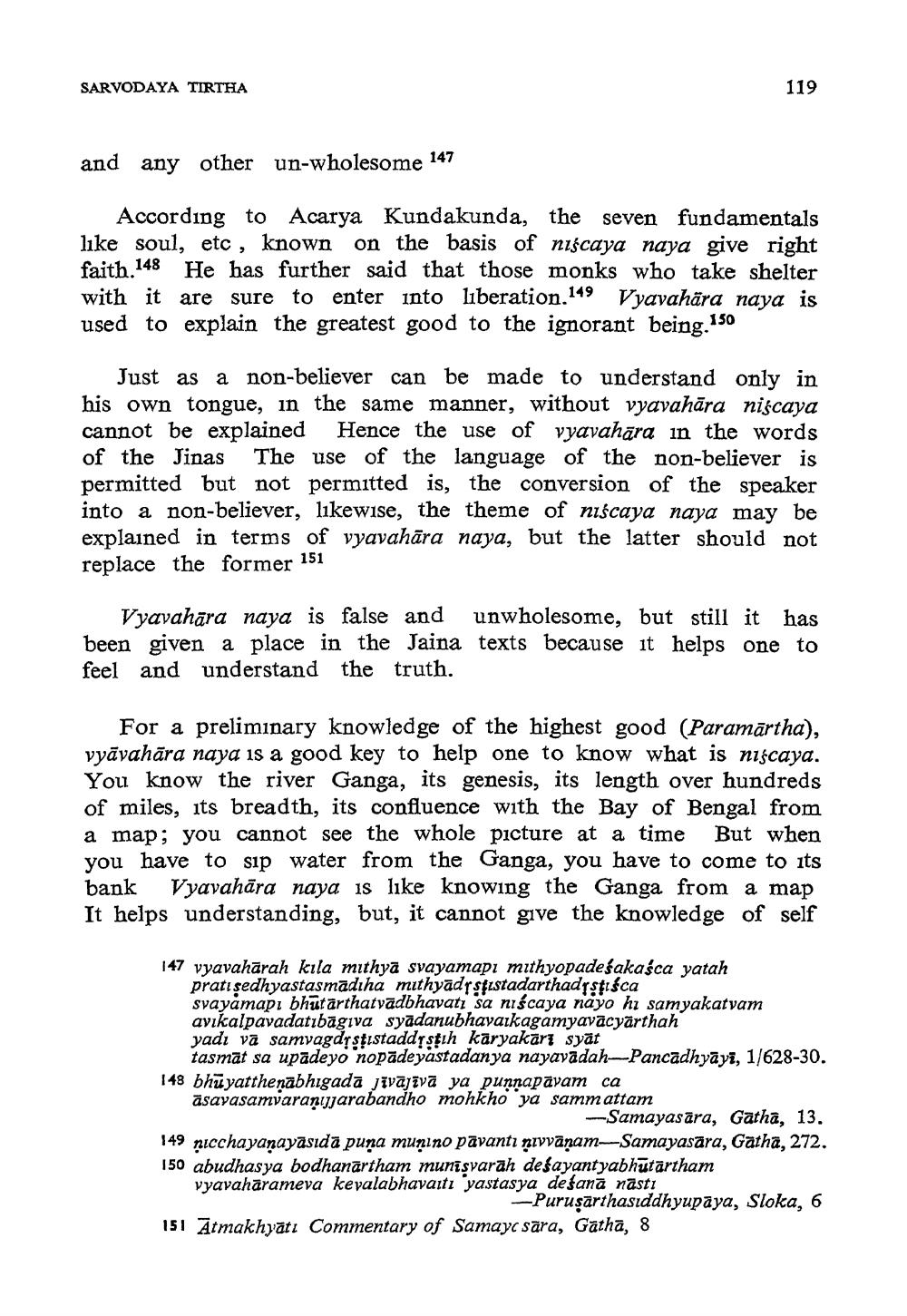________________
SARVODAYA TIRTHA
119
and any other un-wholesome 147
According to Acarya Kundakunda, the seven fundamentals like soul, etc, known on the basis of niscaya naya give right faith.148 He has further said that those monks who take shelter with it are sure to enter into liberation.149 Vyavahāra naya is used to explain the greatest good to the ignorant being. 150
Just as a non-believer can be made to understand only in his own tongue, in the same manner, without vyavahāra niscaya cannot be explained Hence the use of vyavahāra in the words of the Jinas The use of the language of the non-believer is permitted but not permitted is, the conversion of the speaker into a non-believer, likewise, the theme of niscaya naya may be explained in terms of vyavahāra naya, but the latter should not replace the former 151
Vyavahāra naya is false and unwholesome, but still it has been given a place in the Jaina texts because it helps one to feel and understand the truth.
For a preliminary knowledge of the highest good (Paramārtha), vyāvahāra naya is a good key to help one to know what is niscaya. You know the river Ganga, its genesis, its length over hundreds of miles, its breadth, its confluence with the Bay of Bengal from a map; you cannot see the whole picture at a time But when you have to sip water from the Ganga, you have to come to its bank Vyavahāra naya is like knowing the Ganga from a map It helps understanding, but, it cannot give the knowledge of self
147 vyavaharah kıla mithyā svayamapı mithyopadeśakaśca yatah
prati sedhyastasmadıha mithyadrsgustadarthadystréca svayamapı bhutarthatvadbhavatı sa niscaya nayo hi samyakatvam avikalpavadatıbāgiva syādanubhavaikagamyavācyārthah yadı vā samvagdystistaddrstih karyakari syat
tasmāt sa upadeyo nopādeyastadanya nayavādah--Pancadhyāyī, 1/628-30. 148 bhūyatthenabhigada jivājiva ya punnapavam ca asavasamvaranijarabandho mohkho ya samm attam
---Samayasara, Gatha, 13. 149 nicchayanayasıda puna munino pavanti nivvānam-Samayasara, Gatha, 272. 150 abudhasya bodhanartham munisvarah desayantyabhutartham vyavaharameva kevalabhavaitı yastasya de sana nastı
-Puruşārthasıddhyupāya, Sloka, 6 151 Atmakhyāti Commentary of Samay sara, Gatha, 8




